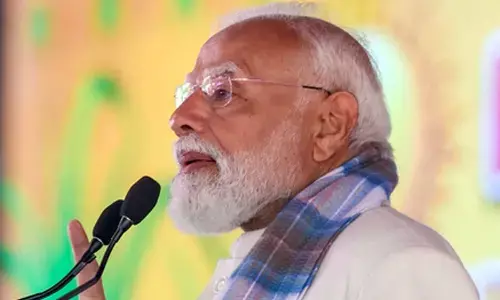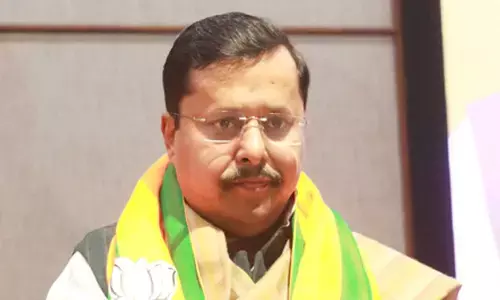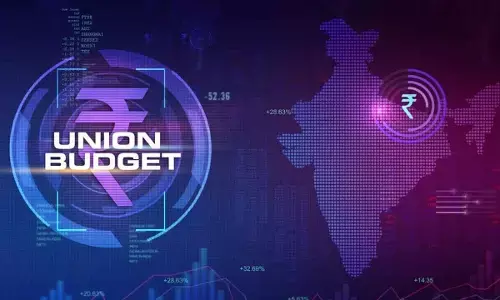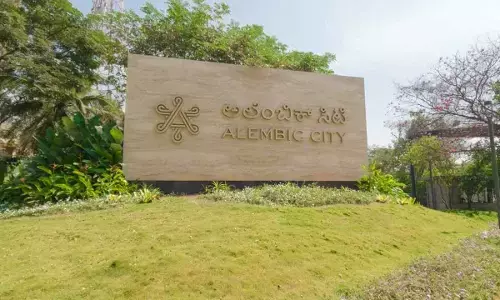New policy will transform education
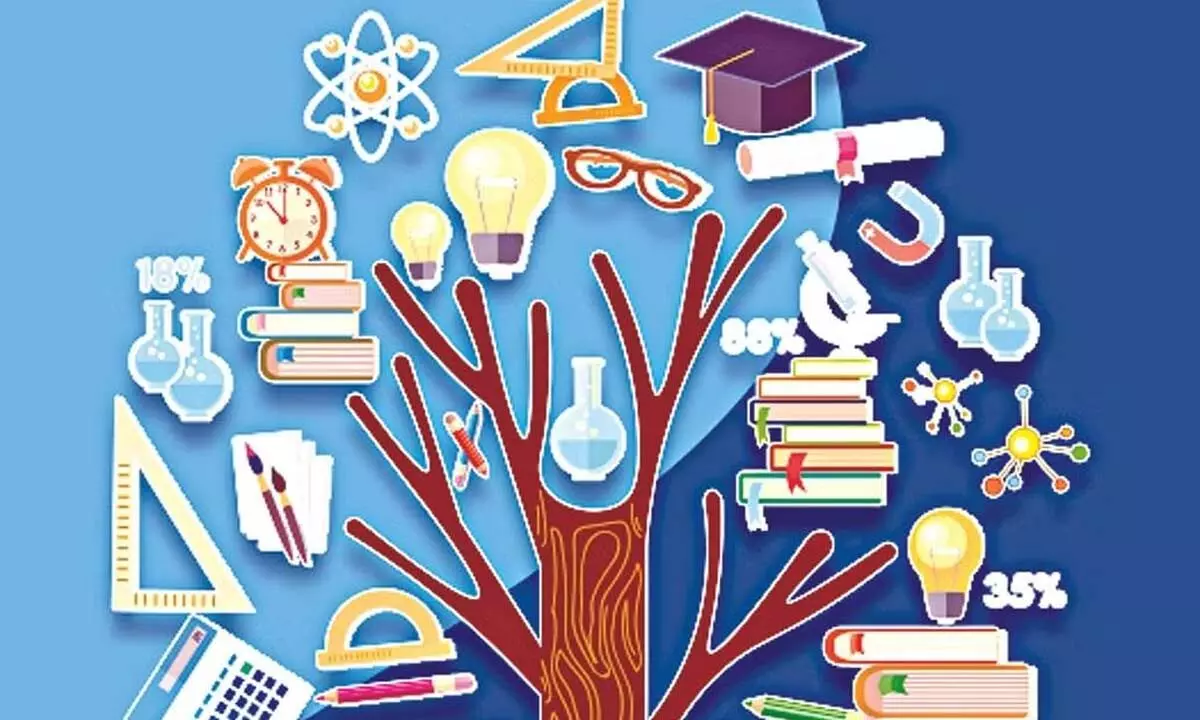
New policy will transform education
After a long summer-vacation, the schools reopen in the month of June-July, welcoming the students to the new academic year.
After a long summer-vacation, the schools reopen in the month of June-July, welcoming the students to the new academic year. It’s time for new classrooms, new syllabus, new uniforms, new accessories and this year it is the implementation of much-awaited New Education Policy. Mahatma Gandhi’s concept of education is not only the eradication of illiteracy but learning by doing. It is based on work-center education which can provide the necessary economic self-sufficiency and self-reliance. A proper harmonious combination of intellect, heart and soul is required for the true economics of education and Gandhi believed that vocational training or work experience has utmost importance. He believed that creative thinking should be taken up from primary to higher level education.
The launch of the much acclaimed, National Education Policy has yet given us a brilliant opportunity to find traces of Gandhi in the everyday realities of education in India. For, Gandhi believed that education system gave primacy to the mind and the spirit. NEP 2020 after almost 3 decades of wait has exhibited a similar shift in philosophy where in it holds that education in its primitive form of rote learning does not lead to the expected out comes of human development. In order to alter this reality, the NEP has put this kind of education at a backseat and has given prominence to the idea of learning which is holistic, integrated, inclusive, enjoyable and engaging.
A very interesting idea of learning, how to learn has also been coined in the NEP 2020, the idea of ‘Nayi Talim’, which believes in education for life, through life, and throughout life. The idea of learning transcends mere education grounds itself in this theory and emphasises greatly on the synthesis between vocation and education, a feature which has come out very prominently in the NEP 2020. Words like behaviour, ethics, hygiene/cleanliness, co-operation in fact have a surreal resemblance to Gandhi’s vision of education. It is only then that we will be able to prepare a more sensitive, unbiased and confident generation of learners who will be ready to embark on to a meaningful, economic and social life, as an adult.
The new policy replaces the previous National Policy on Education 1986. ‘The old order changeth, yielding place to new’. The policy is a comprehensive frame work of elementary education to higher education as well as vocational training in both rural as well as urban India. The policy aims to transform India’s education system by 2030. In this NEP, there will be a 5+3+3+4 structure which comprises of 12 years of school and 3 years of pre-school replacing the old 10+2 structure.
The NEP has been introduced to bring monumental changes in the Indian Education Scenario. Let us look at some of the advantages of New Education Policy. The increased expenditure on education from earlier 3% to 6%, almost double, will bring the much, needed funds, focus and prioritization in the education sector. The changed school structure will reduce the stress of board exams (the moment the students step into class 10, they are constantly reminded of the board exam, causing a fear psychosis in their minds), and will channelize students’ focus towards practical skills and vocational learning.
There is flexibility of choosing subjects based on the interest of the student. Students have broader options to learn now. They have the choice and option of choosing any subject combination from Arts/Humanities, Science and Commerce and can explore a multidisciplinary arena of education. This will help students to learn and grow holistically. The new policy includes significant changes aimed at positioning India as a global knowledge super power. The practice of asking students to choose their stream for class 11 and 12 will be removed by offering a multi-disciplinary approach, which will include self as well as peer assessment.
An overall assessment will include cognitive, functional, emotional and social development of a student along with academic evaluation. It will help the students experience the global quality of education in their very own country. NEP 2020 is making education a basic right. It will bring back many children back to the educational institutes and truly universalize education for children aged 3 to 8. In the NEP the age group for the Right to Education (RTE) is now 3 to 18 years, earlier it was 14 years.
The NEP identifies and develops each child’s potential. It offers flexible learning options. There will be emphasis on technology, introducing to computers at an early age and preparing the child to face the Hi-tech world. Students will be taught coding from class 6 onwards. There is lot of scope to develop children’s creativity and logical thinking. The significant feature that the government made clear shortly after the release of the policy was that no one will be forced to study any particular language and the medium of instruction will not be shifted from English to any regional language. The language policy in NEP is a broad guideline and it is up to the states, institutions and schools to decide on the implementation.
The NEP 2023 is a much needed and comprehensive reform that aims to transform the Indian education system into a more inclusive, flexible and learner centric one. The policy is designed to address the current challenges and gaps in the education sector and provide quality education to all, irrespective of their socio-economic background. It emphasizes using technology and digital resources to enhance the learning experience. To improve various aspects of education, the use and integration of technology will be encouraged and supported.
Efforts will be concentrated on developing technologies to transform the education system and empower educators. The NEP has provision to promote NCC, it will be offered as an optional subject. This aims to instill discipline, punctuality, comradeship, spirit of adventure, sportsmanship and patriotism in students across the country and make youth responsible citizens.
The NEP was launched to prepare students for the demands of 21st century. The NEP 2023 were implemented by the government based on the feedback and suggestions from all stake holders. The implementation needs the support and collaboration of all stake holders, including the governments, educational institutions, parents and the industry. These policies are in tandem with the changing times and cater to the present and future demands of the world. ‘Let Knowledge Grow from More to More.’










